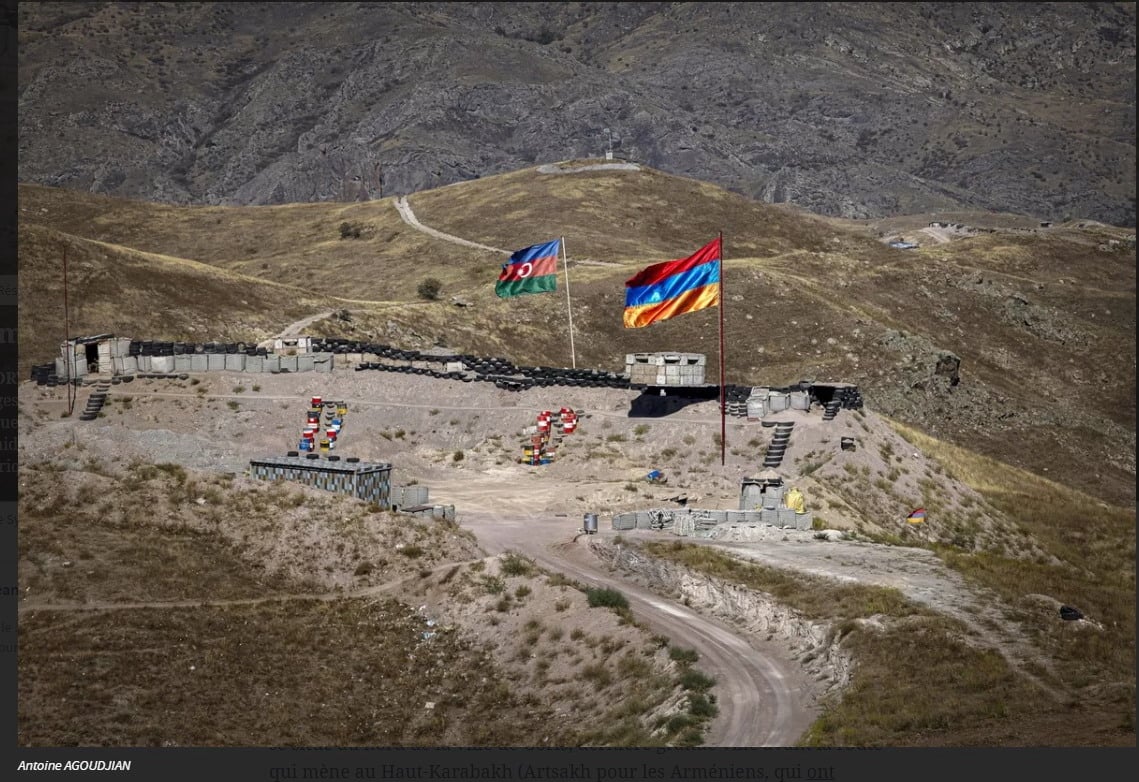"Ultimatum to Aliyev": Opinions from Yerevan on the European Parliament's report
The European Parliament adopted two reports concerning the EU’s security and defense policy, which also mention Armenian-Azerbaijani relations. One of them speaks of the “necessity for targeted sanctions against Azerbaijan in case of aggression towards Armenia.”
The opinions of Armenian political scientists regarding the statement by European parliamentarians vary. Some assert that the application of sanctions is “highly probable.” Others believe that the sanctions can only be effective if the energy agreement between Azerbaijan and the EU is annulled and the purchase of energy carriers is suspended.
- “Baku intends to escalate border tensions into full-scale war” – Pashinyan
- “Baku forcing new concessions from Yerevan”: view on the latest escalation
- Why are EU and US unable to reconcile Yerevan and Baku? Opinion
The European Parliament proposes to reconsider partnership agreements
In Armenian expert circles and media, attention is focused on the following calls from European parliamentarians:
- “Be prepared to apply targeted and individual sanctions against the perpetrators of aggression, but not to be limited to the political and military entourage of Azerbaijani President Ilham Aliyev, and also to cease importing oil and gas from Azerbaijan in the event of any military aggression against the territorial integrity of Armenia.”
- “Introduce sanctions against the authorities of Azerbaijan as responsibility for numerous violations of the ceasefire regime,
- suspend the operation of the Memorandum of Understanding on strategic partnership in the energy sector,
- suspend negotiations on a new partnership agreement with Azerbaijan in light of recent events and the dramatic situation in that country regarding human rights.”
The military operation in Nagorno-Karabakh was called “unjustified”
The Azerbaijani military operation on September 19-20, 2023, was characterized in the European Parliament as “a premeditated attack on Nagorno-Karabakh,” considering it “unjustified.”
They reminded that the hostilities followed “months of isolation of Armenians living in Nagorno-Karabakh through the blockade of the Lachin corridor. The so-called Russian peacekeepers did not take any action to prevent or stop the blockade and military invasion in NK.”
European deputies called on the Azerbaijani authorities to allow the safe return of the Armenian population to Nagorno-Karabakh. They also emphasized the importance of protecting Armenian cultural, historical, and religious heritage. They demanded that it be protected in accordance with UNESCO standards and Azerbaijan’s international commitments.
“This position is not only of the members of the European Parliament”
A member of the parliament from the ruling faction, the chairman of the committee on European integration, Arman Yegoyan, told local journalists that other partners share the position of the members of the European Parliament:
“Many EU member states are ready to apply this toolkit [sanctions] in case of the mentioned dangerous development of events [violation of Armenia’s territorial integrity].“
In his opinion, the reports of the European Parliament “are not pro-Armenian; they just reflect the objective reality.” Meanwhile, he believes that the statements of European deputies “on the inadmissibility of the policy conducted by Azerbaijan” are becoming more specific:
“For example, two years ago, nobody talked about sanctions, they were not even considered. Now, they are talking about sanctions. And not just individual, but also about a general ban on buying oil and gas, which is an important sign.”
Comments
Political scientist Garik Keryan positively assesses the statements made in the reports of European deputies. However, he believes that the effectiveness of such documents is still small.
According to him, with their statements, the West is trying to create a background of support for Armenia. This is due to the leadership of Armenia’s desire to “change the foreign policy vector and bring the political system in line with the Western model.”
From this perspective, Keryan views the reports of the European Parliament as moral support. He immediately recalls the “regular response of Azerbaijani President to European partners that they cannot impose anything on him or call for moving in a certain direction.” Moreover, he notes that despite the criticism, high-ranking European officials warmly welcomed Aliyev in Munich. And the head of the European Council, Charles Michel, congratulated Aliyev on his last presidential election victory:
“What is written on paper is one thing, and state interests are another. I don’t criticize the leadership of the EU or Western politicians. But I understand that economic, energy, and military-political interests related to Turkey make it necessary to be extremely cautious in relations with Azerbaijan.”
Political scientist Gurgen Simonyan considers the likelihood of imposing sanctions against Azerbaijan as “more than a realistic scenario in case of aggression against Armenia.”
He believes that even freezing or confiscation of assets of high-ranking Azerbaijani officials is possible.
He does not exclude that Europe is ready to terminate the energy agreement with Baku. He considers the limited resources of Azerbaijan as the basis for this:
“Exporting annually at best 13 billion cubic meters of gas, one can only satisfy the needs of Italy and the Balkan countries. Therefore, Europe cannot significantly depend on Azerbaijani energy resources. And this is no reason to turn a blind eye to Baku’s aggressive actions.”
Simonyan is not inclined to exaggerate the factor of Turkey:
“Over time, the Turkish-Azerbaijani tandem may weaken — due to certain circumstances. And the Aliyev regime is now associated not so much with Turkey as with Russia. Aliyev has been given the last chance, an ultimatum has been presented, following which specific steps will be taken.”
The political scientist is confident that European policy is aimed at preventing potential military actions in the South Caucasus. In the event of their start, “specific steps will be taken not only in the context of economic sanctions but also in terms of military aid to Armenia.”




















